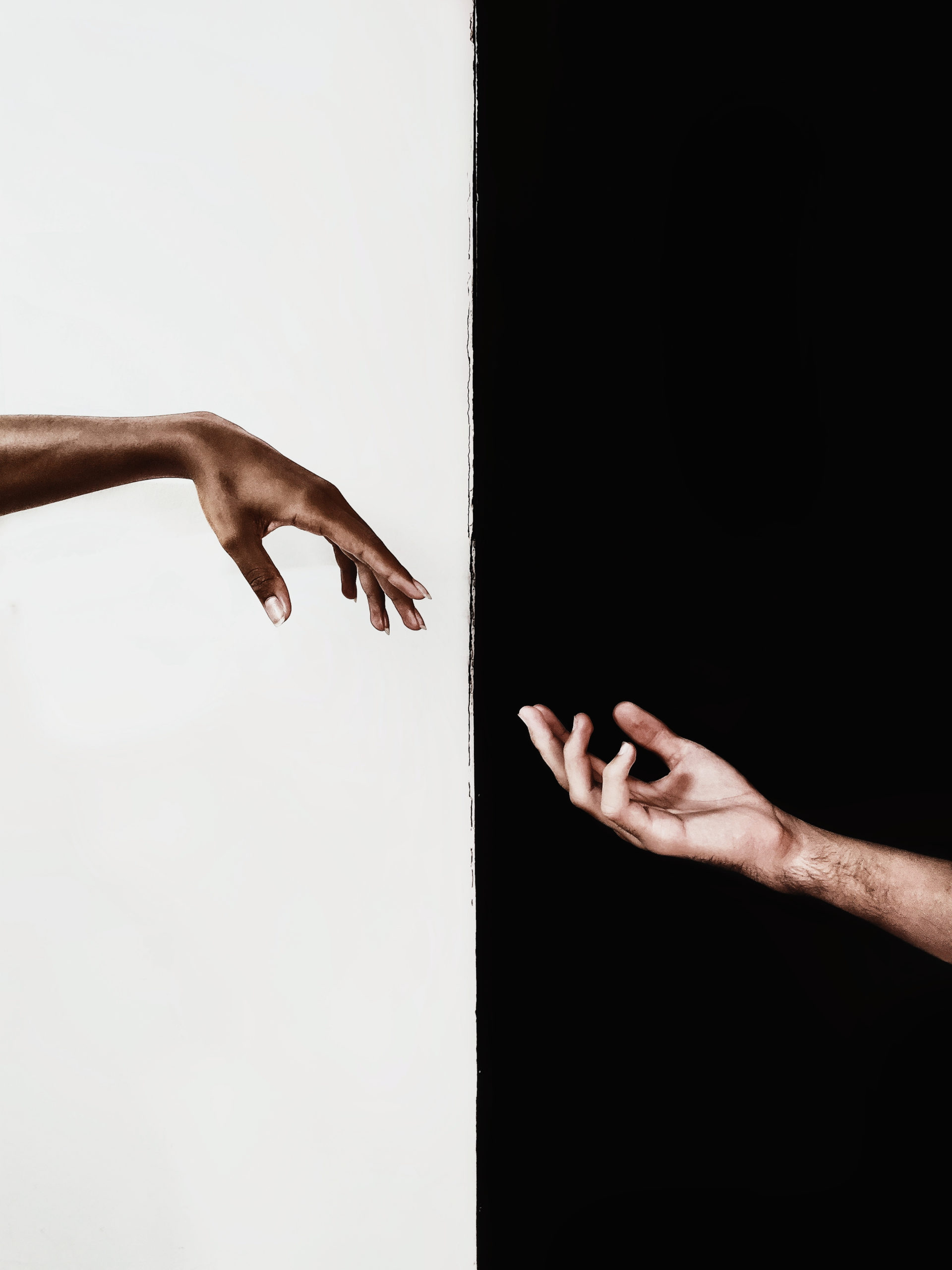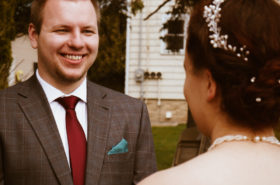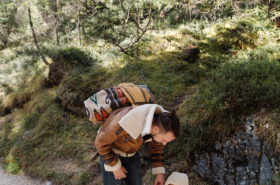
In Jordan Peterson’s 12 Rules For Life, a dualist template is provided: order and chaos. They are inextricably intertwined, Peterson states, referencing Yin Yang and the cross of Christ as symbols of the dynamic between them.
Yin and Yang display as it is: “The black dot in the white – and the white in the black – indicate the possibility of transformation: just when things seem secure, the unknown can loom, unexpectedly and large. Conversely, just when everything seems lost, new order can emerge from catastrophe and chaos.”¹
The cross, Peterson rightly and unknowingly ascertains, is what is intended to occur: “I knew that the cross was simultaneously, the point of greatest suffering, the point of death and transformation, and the symbolic centre of the world… Existence at that cross is suffering and transformation – and that fact, above all, needs to be voluntarily accepted.”¹
He calls the cross “the centre of Being” and it is, to him, a terrifying place to be. In a dream, he found himself there, not voluntarily, but there all the same. “That was not somewhere I wanted to be… and there was no escape.” And yet, in order to live, in order to truly live, it is the place we must be. We must walk the line between these paradoxical forces. “It’s the right place to be, in every sense.”¹
However, we cannot walk this line if we are afraid of falling too deep into order and being consumed by chaos. We will not walk it, but stumble down it, anxiously calculating every step with nothing to judge it against. We will grapple to find a source of stability, a standard to follow, and have no point of reference except our own experience.
Peterson encountered this source in his dream and it was too far above his comprehension to bear. It transcends limited human understanding. However, when the One who encountered this cross and emerged victorious from it paves the way, dwelling in us by His Spirit, we find the paradoxes of life not only possible to endure but almost whimsically simple. Here, three of those will be explored, although the list could go on as long as this life endures.
The Fullness of Pleasures in the Bounds of Holiness
“Never forget that when we are dealing with any pleasure in its healthy and normal and satisfying form, we are, in a sense, on the Enemy’s ground. I know we have won many a soul through pleasure. All the same, it is His invention, not ours.”
C.S. Lewis as Screwtape, The Screwtape Letters
The word holiness, or its synonym in English, “sacred”, carries with it images of a transcendent purity, but with an element of austerity, even stoicism. Passions and pleasures are not found here, although this image possesses undeniable beauty.
Perhaps this image can be credited in part, but mistakenly*, to cathedrals and the images of people in their tall stained glass windows and perfect icons, with their quiet smiles and unexpressive postures. These faces of non-human figures present to us a sort of ideal that maybe we can ascend to, if we practice holiness enough, transcending this fleshly life into an ethereal state of satisfied serenity.
However, this is a gnostic notion that must be discarded completely. Christianity does not demand denial of passion and pleasure on its own accord; in fact, scripture makes it clear that God created them and wholly approves of them (Ecclesiastes 2:24; Song of Solomon 1:2, 2:2; John 2:10-11; Revelation 22:1-5).
Jesus did not merely die in spirit, but in body. His flesh died and resurrected along with His soul – there was no such divide between body and soul in this redemptive process. When we die, we will not merely be raised as spirits, but as bodies. This notion of transcending bodily experiences of spiritual realities is a natural conclusion of docetism, a heresy claiming Jesus came only in spirit and only appeared to have a body. But we know this to not be so. Jesus came in the flesh, as did Adam, to redeem a fallen creation. His first miracle was to extend the celebration of a wedding feast, blessing it with more (and excellent) wine, rejoicing in a couple through dancing and laughing and singing, a couple that would soon become one flesh before God.
No other worldview can walk this line. It will either swing to an extreme form of asceticism or hedonism. However, the Father and Sustainer of all creation, through the work of the perfect Human, the Christ, His Son, has taken rule over the passions and pleasures He created in the first place.
And here is where holiness and pleasure unite in a full picture of God’s rich reality. The passion and pleasure is given to add to life – not take from it, where it could hinder joy or cloud any moment living with eyes open to the God who gave it and His perfect will for such things. Passions and pleasures are fully passionate and pleasing when experienced as intended, and will always be lacking when experienced outside of this holy intent. It is when the Christian partakes in pleasures to the glory of God that such things are found fully enriching and the line is masterfully walked, seeing as they are following in the footsteps of the Master.
“And one of the two or three defiant verities of the best religious morality, of real Christianity, for example, is exactly this same thing; the chief assertion of religious morality is that white is a colour. Virtue is not the absence of vices or the avoidance of moral dangers; virtue is a vivid and separate thing, like pain or a particular smell. Mercy does not mean not being cruel, or sparing people revenge or punishment; it means a plain and positive thing like the sun, which one has either seen or not seen.”
G.K. Chesterton
*I say mistakenly because I do not believe that was the intent of the imagery, or at least, not in all uses and time periods. I believe there is a mix of that being the intention in places like Roman Catholicism, where standards and works were imposed on the masses, contrasted with that imposition being projected by onlookers onto the imagery and missing the point of the imagery in the first place. But that’s a post in and of itself.
The Wholly Contented Soul In A State of Discontentment
“The Christian is the most contented man in the world, but he is the least contented with the world. He is like a traveler in an inn, perfectly satisfied with the inn and its accommodation, considering it as an inn, but putting quite out of all consideration the idea of making it his home.”
Charles Spurgeon
At first glance, it seems there are pairs of emotions that oppose each other. Happiness and sadness. Anger and grace. Contentment and discontentment.
However, we can experience such emotions in harmony. When we send a friend home after a visit, or consider a friend we cherish but cannot be with in that moment, there is a happiness for their existence and sadness for their absence. We can forgive and extend love to one who has wounded us or someone else while simultaneously hating and not tolerating the sin they committed against us.
Contentment and discontentment is a difficult one to reconcile, but it is most vivid and possible within Christianity. We find ourselves more deeply contented than normally possible while having the ache for something more increased to a point that is sometimes unbearable.
“If I am to live in the flesh, that means fruitful labor for me. Yet which I shall choose I cannot tell. I am hard pressed between the two. My desire is to depart and be with Christ, for that is far better. But to remain in the flesh is more necessary on your account,” says Paul in Philippians 1. It is a joy to be here, sharing in suffering (see another paradox?), communing with believers, laboring for the kingdom. But this real, steady joy is accompanied by the reality of the resurrection: when death comes, it will mean a renewal we cannot perceive with human minds – something to long for. Death is a doorway to eternal completion, where we will lack nothing.
So, while we live here, we are satisfied knowing it is exactly what God has intended. We are fulfilled in our labors and our felt lacks are comforted through the indwelling of His Spirit. We are made content through Christ, who strengthens us (Philippians 4:13), while remaining restless for the life to come.
Living In Joy To Rejoice In Death
Perhaps one of the most famous and piercing verses in Scripture is Paul’s statement in Philippians 1:21 – “For to me to live is Christ, and to die is gain.”
Capturing this same tension is Peter’s words in 1 Peter 4:13: “But rejoice insofar as you share Christ’s sufferings, that you may also rejoice and be glad when his glory is revealed.”
And all this in reflection of the Christ Himself: “Therefore, since we are surrounded by so great a cloud of witnesses, let us also lay aside every weight, and sin which clings so closely, and let us run with endurance the race that is set before us, looking to Jesus, the founder and perfecter of our faith, who for the joy that was set before him endured the cross, despising the shame, and is seated at the right hand of the throne of God.” (Hebrews 12:1-2)
In a world where suffering is to be avoided at all costs and death is cursed and feared, where the dualism of life and death are ever-present, only One could walk the line between the two with a graceful authority over both, granting life to those who die to self, and using death itself to accomplish the task. Only One could take the concept of suffering, which every other worldview attempts to reconcile through avoidance, and make it an integral part of true living, and even more than that, something to rejoice in.
Christians look like fools to the world living in the glorious wisdom of God: “Then they left the presence of the council, rejoicing that they were counted worthy to suffer dishonor for the name.” (Acts 5:41.)
Christianity is an all-encompassing worldview, accounting for and drawing together all aspects of reality in this life, discarding nothing, redeeming everything, all to the glory of the God behind it all. Chaos finds order, finding redemption in it and contributing to its end. The paradoxes find resolution. At the beginning and end of the impossible path, Christ stands, with Whom all things are possible, Alpha and Omega, Lord of all.
¹ Peterson, Jordan B. 12 Rules for Life: An Antidote to Chaos. Random House Publishing, 2018.


